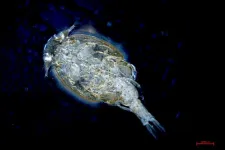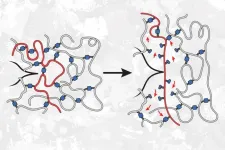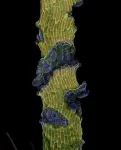(Press-News.org) In this Policy Forum, Jeremy Sugarman and colleagues describe the risks that increasingly limited access to abortion may pose to clinical research participants and staff, one year after the U.S. Supreme Court’s decision in Dobbs v. Jackson Woman’s Health Organization. People who may become pregnant are already an understudied population in clinical research. The authors suggest that new laws restricting abortion access may lead to ethical, legal and practical problems that make the risk of conducting research with this population unreasonable compared to the potential benefits. Among the challenges noted by Sugarman et al.: Clinical trials may expose some participants to threats to their health or life or a fetus if they become pregnant, but restrictive laws could prevent a safe and timely abortion in this case. Participants in some studies are required to get regular pregnancy tests, which could detect and document miscarriages that could raise concerns in some places that an illegal abortion was obtained. The risks of restricting abortion may make some participants less likely to participate in clinical research, and researchers themselves might be less likely to collect information on pregnancy, compromising the scientific and social value of the research. Sugarman et al. note that researchers may need to make provisions for safe and legal abortion access for study participants, while identifying and protecting against legal risk to research staff. Researchers should also make study participants aware of the status of abortion restrictions and how they might relate to the research in explicit informed consent documents, they say. “Finally, those contemplating the development and implementation of policies pertaining to abortion should also consider their potential negative impact on the ability of researchers to advance science that can improve the health and well-being of those who are pregnant and their fetuses,” the Policy Forum authors write.
END
Laws restricting abortion have ethical, legal and practical impacts for research on people who may become pregnant
2023-06-22
ELSE PRESS RELEASES FROM THIS DATE:
Are viruses keeping sea lice at bay in wild salmon?
2023-06-22
More than 30 previously unknown RNA viruses in sea lice have been identified by University of British Columbia (UBC) researchers. Sea lice are parasitic copepods (small crustaceans) found in many fresh and saltwater habitats, and have been implicated in the decline of wild salmon populations. The research sheds greater light on the types of viruses being carried by sea lice, and how the viruses and host are interacting.
“We found many more types of viruses than are known in sea lice or their distant relatives; the lice are mounting an immune defense response to many of these viruses indicating that they are replicating,” says UBC marine microbiologist Dr. Curtis Suttle, ...
The molecular control centre of our protein factories
2023-06-22
Based on genetic blueprints, individual amino acids are assembled into long amino acid chains, the proteins, in the protein factories of our cells, the ribosomes. Each newly formed protein starts with the amino acid methionine. This amino acid is often split off again during protein synthesis, as soon as the growing amino acid chain leaves the protein factory through the "ribosomal tunnel". In these cases, the excision of methionine is essential to ensure the subsequent function of the corresponding ...
Surprise! Weaker bonds can make polymers stronger
2023-06-22
CAMBRIDGE, MA -- A team of chemists from MIT and Duke University has discovered a counterintuitive way to make polymers stronger: introduce a few weaker bonds into the material.
Working with a type of polymer known as polyacrylate elastomers, the researchers found that they could increase the materials’ resistance to tearing up to tenfold, simply by using a weaker type of crosslinker to join some of the polymer building blocks.
These rubber-like polymers are commonly used in car parts, and they are also often used as the “ink” for ...
The clue is in the glue - Nature’s secret for holding it together
2023-06-22
An obscure aquatic plant has helped to explain how plants avoid cracking up under the stresses and strains of growth.
The finding by researchers Dr Robert Kelly-Bellow and Karen Lee in the group of Professor Enrico Coen at the John Innes Centre, started with a curious observation in a dwarf mutant of the carnivorous plant Utricularia gibba.
The stems of this floating plant are filled with airspaces and this hollowness means that the vascular column inside the stem can buckle when under stress. This effect would not be apparent in most plants, which have solid stems.
The researchers saw that in a dwarf mutant the central column was wavy instead of straight. They hypothesised that ...
Generative AI models are encoding biases and negative stereotypes in their users
2023-06-22
The likes of ChatGPT, Google’s Bard and Midjourney can also help spread incorrect, nonsensical information
Marginalised groups are disproportionately affected
Children are at particular risk
In the space of a few months generative AI models, such as ChatGPT, Google’s Bard and Midjourney, have been adopted by more and more people in a variety of professional and personal ways. But growing research is underlining that they are encoding biases and negative stereotypes in their users, as well as mass generating and spreading seemingly accurate but nonsensical information. Worryingly, marginalised groups are disproportionately affected by the fabrication of this nonsensical information.
In ...
Bringing the power of "multiplex" imaging to clinical pathology
2023-06-22
June 22, 2023, NEW YORK – Researchers at the Ludwig Center at Harvard have developed a platform technology for imaging that enables integration of the methods of microscopic analysis long employed in pathology laboratories with the visualization of multiple molecular markers in individual cells that is now rapidly advancing in research labs. The latter capability, known as “multiplex” imaging, promises to revolutionize cancer diagnostics by exposing molecular traits associated with ...
NF researchers, clinicians and patients gather for annual conference in Scottsdale
2023-06-22
From June 21 through June 27, the largest gathering of NF researchers, clinicians, and patients in the world will take place at the Fairmont Scottsdale Princess in Scottsdale, Arizona. NF is a group of genetic disorders that causes tumors to grow on nerves throughout the body, and affects 1 in 2,000 births of all populations equally. As such, NF affects millions worldwide, but is underrecognized. While there is one approved treatment for a small subgroup of NF patients with plexiform neurofibromas, there is no cure yet, and the vast majority of NF patients face serious health issues because of the condition. ...
Argonne installs final components of Aurora supercomputer
2023-06-22
The installation of Aurora’s 10,624th and final “blade” marked a major milestone for the highly anticipated exascale supercomputer at the U.S. Department of Energy’s (DOE) Argonne National Laboratory.
After years of diligent work and planning, the system now contains all the hardware that will make it one of the most powerful supercomputers in the world when it is opened up for scientific research. Built by Intel and Hewlett Packard Enterprise (HPE), Aurora will be theoretically capable ...
Being able to tell parents about sexuality plays important role in mental health of Black sexual minority men and transgender women
2023-06-22
Black sexual minority men (BSMM) and transgender women (BTW) face racial and sexuality-based discrimination, and disproportionately high depression compared to Black heterosexual men and Black cisgender women, respectively. Though previous studies have demonstrated the relationship between discrimination and depression among racial and sexual minorities, few studies explore the extent to which openness with parents impacts this relationship.
A new study by College of Public Health Assistant Professor Rodman Turpin found that sexual identity ...
Transforming Anthropology joins the University of Chicago Press journals program in 2024
2023-06-22
We are honored to announce that Transforming Anthropology will join the University of Chicago Press journals program beginning in 2024 (vol. 32, no. 1). Transforming Anthropology is the flagship journal of the Association of Black Anthropologists (ABA), which is a section of the American Anthropological Association (AAA). All 8,000+ members of the AAA receive online access to Transforming Anthropology through their membership, and that benefit will continue in this new partnership.
“Thanks to the vision and dedication of our editor, Aisha Beliso-De Jesús, the journal will maintain its tradition of supporting and nurturing ...




